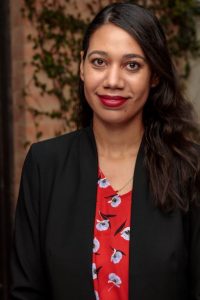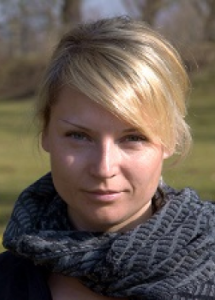The Public Humanities Faculty Fellowships are awarded to scholars to support their development of Public Humanities research projects. Fellows receive a course-release and a research grant to work on an individual humanities-oriented research project. Congratulations to this year’s awardees.
Dr. Amanda Cheong (Department of Sociology)
“Stateless Youth Artistic Activism and the Citizenship Amendment Bill in Malaysia”

The Malaysian government is currently considering Constitutional amendments to restrict legal pathways into citizenship for stateless persons. These amendments would negatively impact numerous marginalized populations already at risk of statelessness, including migrant and Indigenous communities. While statelessness has become a subject of national concern in Malaysia, the voices of stateless people themselves remain marginalized in political and policy debates about citizenship, migration, and inclusion. This time-sensitive project is a community action research partnership that will facilitate the creation and mobilization of multimedia advocacy materials by stateless youths, harnessing the genres of punk rock music, creative writing, and graphic art. These materials will be used to educate Malaysian and international public audiences about the human rights issues at stake with the Citizenship Amendment Bill, and about the impacts of statelessness on young people’s lives. Our project will shed light on the creative political capacities of those who are abjectly politically excluded.
Dr. Crystal Webster (Department of History)
“Condemned: How America’s Courts and Prisons Terrorized Black Children“

Condemned is a narrative-driven, child centered history focusing on the extraordinary presence of Black children in adult prisons and juvenile reformatories, and their harsh punishments in criminal courts. While academic and public scholarship has exposed the racialized, historical origins of mass incarceration and its mistreatment of African Americans, much of the focus has been on the end of southern slavery, when the thirteenth amendment legalized involuntary servitude. However, Condemned reveals that officials criminalized and incarcerated Black children at vastly higher numbers than whites far earlier and in the urban North. Condemned illuminates the violence of criminal punishment and incarceration of Black children in early America, and challenges conventional thought that large-scale incarceration began after slavery and started with adults. Its unique focus as a child-centered history unearths the particular violence of criminal punishment and incarceration for Black children and youth, a history overlooked for far too long.
Dr. Antje Ziethen (Department of French, Hispanic & Italian Studies)
“Reverse Diaspora: The “Brazilians” in West Africa”

My project sheds light on an unknown chapter in transatlantic history. I study the relocation of Africans and African descendants from Brazil to West Africa during the 19th and 20th centuries. Standard conceptions of diasporic flow and cultural influence are usually studied in one direction: from Africa to its diaspora in the Americas, but these returnee communities of former slaves established a successful settlement system in Benin and Togo. Wielding considerable economic and political power, they have shaped communities and histories on the African continent. The public-facing component consists of a collaborative hybrid installation at the MOA, connecting the Latin American and African collections. The project involves students, MOA curators, and African authors. It will be accessible to visitors of the museum and its website, as well as to audiences in Togo and Brazil. The objective is to initiate conversations on slavery, racism, return migration, and resilience while creating alternative narratives about the African continent.